To ensure we are equipping our readers with all the information they need, we will continue to report on all travel and safety-related news that could impact a Disney Parks visit.
From COVID-19 to monkeypox, there’s a lot more to consider when visiting Disney World than just park tickets and dining reservations.
We’ve already shared a full look at what you need to know about COVID-19 and Disney World, and news about the spread of monkeypox to all 50 U.S. states, but what about the upcoming flu season? What can you do to prepare? What symptoms should you watch for? Let’s go through everything you need to know right here.
When Is Flu Season in the U.S.?
According to the Centers for Disease Control and Prevention, the flu season in the United States mainly takes place in the fall and winter. The exact timing can vary, but generally, influenza activity starts to pick up in October.
Most activity will then peak between December and February, but significant flu activity can continue through as late as May.
How Does the Flu Spread?
Someone who has the flu can spread it to people up to 6 feet away. The CDC shares that experts believe the flu virus mainly spreads by droplets that form when a person with the flu coughs, sneezes, or talks.
These droplets can land on the mouths or noses of others who are nearby or can potentially be inhaled into the lungs. Though this generally happens less often, a person might also get the flu by touching a surface or some kind of object that has the flu virus on it, and then touching their own mouth, nose, or potentially eyes.
Most healthy adults are generally able to infect others 1 day before symptoms start and up to 5-7 days after becoming sick. Symptoms may not begin until about 2 days (sometimes 1-4 days) after the virus enters the body. So, the CDC cautions, “That means that you may be able to pass on the flu to someone else before you know you are sick, as well as while you are sick.”
What Symptoms Should You Look For?
The flu can cause symptoms that range from mild to severe, and can sometimes lead to death. Flu symptoms can come on suddenly. Here are some of the symptoms you should look for, according to the CDC:
- fever or feeling feverish/chills
- cough
- sore throat
- runny or stuffy nose
- muscle or body aches
- headaches
- fatigue (tiredness)
- some people may have vomiting and diarrhea, though this is more common in children than adults.
Importantly, the CDC points out that not everyone who gets the flu will have a fever.
Things to Know About the Flu
Before we get into things you can do to prevent getting the flu, let’s go over some key facts to know.
First, kids are most likely to get sick from the flu, and people 65 years old or older are least likely to get sick from the flu. Adults 16-64 were right in the middle in terms of attack rate.
The proportion of people who get sick from the flu can vary.
There can be complications from the flu that include “bacterial pneumonia, ear infections, sinus infections and worsening of chronic medical conditions, such as congestive heart failure, asthma, or diabetes.”
Certain people are at high risk of developing more serious flu-related complications. Those at higher risk include people 65 years old and older, people with certain chronic medical conditions (like asthma, diabetes, and heart disease), people who are pregnant, and kids younger than 5 years old.
Want to know what the flu numbers are looking like in Florida ahead of your trip? Head to the Florida Health website to see their updates. For the weeks encompassing August 14th-August 27th, 2022, Florida’s numbers showed a decreasing activity trend when it comes to the flu.
Still, the website noted that it was “higher than expected levels for this time of year.”
The 2022 Flu Season Could Be Different
Various individuals have pointed to the fact that the 2022 flu season could be different than what we’ve seen in recent years.
According to CNBC, the United States could have a severe flu season this year if trends in the Southern Hemisphere (which are historically an indication for the U.S.) hold true.
Why is that the case? Well, while officials have warned of a bad flu season before on top of a winter surge of COVID-19, and that hasn’t necessarily materialized in the past, this year is different. Over in Australia, flu is surging for the first time since the COVID-19 pandemic started. The flu season in Australia could serve as an indication of what’s to come for those in the U.S.
According to a report from an Australian government department, they’re nearing the end of their worst flu season in 5 years. The season started earlier than usual and has hit kids the hardest.
Additionally, Dr. Abinash Virk, who is an infectious diseases specialist at Mayo Clinic, has said that the fact that many have stopped masking can impact things. Dr. Virk said, “For the large part, we will see the reemergence of influenza in the winter. In comparison, in 2020 winter, when we were all masking and social distancing, there was literally no influenza. But now that has all changed.”
What Can You Do to PREVENT Getting Sick?
So what can you do to try and prevent getting sick from the flu? A few things.
Flu Vaccine
First, you could get the flu vaccine. According to the CDC, “The first and most important step in preventing flu is to get a flu vaccine each year.” The CDC points out that the flu vaccine has been shown to reduce flu-related illnesses, along with the risk of serious flu complications that could lead to hospitalization or death.
The CDC recommends that everyone 6 months and older get the annual flu vaccine, ideally by the end of October. They note that this season, all of the flu vaccines will be designed to protect against the 4 flu viruses that “research indicates will be most common.”
Florida’s Department of Health website echoes this sentiment by saying that the best way to prevent the flu is to get the flu vaccine each fall.
Flu shots are often available at local pharmacies, like CVS Pharmacy, so you can typically find one at a location near you. You can use websites like vaccines.gov to help find a place near you where the flu shot is available.
Preventative Actions
In addition to getting the flu shot, the CDC recommends that individuals take preventative actions. These include:
- Avoiding close contact with people who are sick
- Covering coughs and sneezes — cover your nose and mouth with a tissue and throw the tissue in the trash after you use it
- Washing your hands often with soap and water — if you don’t have soap and water available, use an alcohol-based hand rub
- Avoiding touching your eyes, nose, and mouth to limit the spread of germs
- Cleaning and disinfecting surfaces and objects that could be contaminated with a virus that could cause the flu
If you do get sick, the CDC recommends that you limit your contact with others as much as possible so as to prevent infecting them. It’s also recommended that people stay home for at least 24 hours after their fever has gone away (they say the fever should be gone without the need to use fever-reducing medicine) unless they need to leave to get medical care or necessities.
Also, if you get sick, there are medicines called flu antiviral drugs that can be used to treat the flu. These are prescription medicines you can obtain from your doctor.
Looking to head to Disney World during flu season? There are a few things that could help you sanitize the space around you during your travels.
First, on Amazon, you can pick up Lysol disinfectant wipes, which kill lots of viruses, including cold and flu viruses.
This set comes with a pack of 4. Since they’re separated into those 4 packages, it makes them easier to throw into your bag to carry with you. These are priced at $14.99 normally but are on sale for $14.31 as of the time of the writing of this post.
Get the wipes here
You can also pick up some Purell Hand Sanitizers to attach to your purse, park bag, stroller, etc.
These are said to typically kill 99.99% of germs. The set comes with a pack of 8 travel-size bottles with the carriers, and it’s priced at $14.38.
Click here to buy the hand sanitizer
If you are looking for a spray that you could use to sanitize surfaces, you can also pick up the Lysol disinfectant spray.
The disinfectant spray kills 99.9% of viruses and bacteria and it comes in a travel-friendly size. Get the pack of 4 for $14.95.
Click here to bring home this Lysol spray set
What else can you do to be prepared? If you’re concerned that you or your family could get sick ahead of your travels, be sure to read up on Disney’s cancelation policies when it comes to hotels, dining reservations, vacation packages, etc. in case plans have to change. You can click here to see more about those.
You can also click here to see how to cancel your Disney World hotel reservation in case that becomes necessary.
You’ll also want to take a look at your airplane’s cancelation policies and what their rules are, so you can be prepared.
We’ll continue to keep an eye out for more information about flu season and we’ll let you know what we find. In the meantime, click here to see the ultimate Disney World packing list for 2022 and click here to learn about the easy way to handle getting sick in Disney World.
Click here to see what you need to know about the BA.5 COVID-19 variant and Disney World
Join the DFB Newsletter to get all the breaking news right in your inbox! Click here to Subscribe!
WE KNOW DISNEY.
YOU CAN, TOO.

Oh boy, planning a Disney trip can be quite the adventure, and we totally get it! But fear not, dear friends, we compiled EVERYTHING you need (and the things to avoid!) to plan the ULTIMATE Disney vacation.
Whether you're a rookie or a seasoned pro, our insider tips and tricks will have you exploring the parks like never before. So come along with us, and get planning your most magical vacation ever!
What do you do to prepare for flu season when going to Disney World? Tell us in the comments.


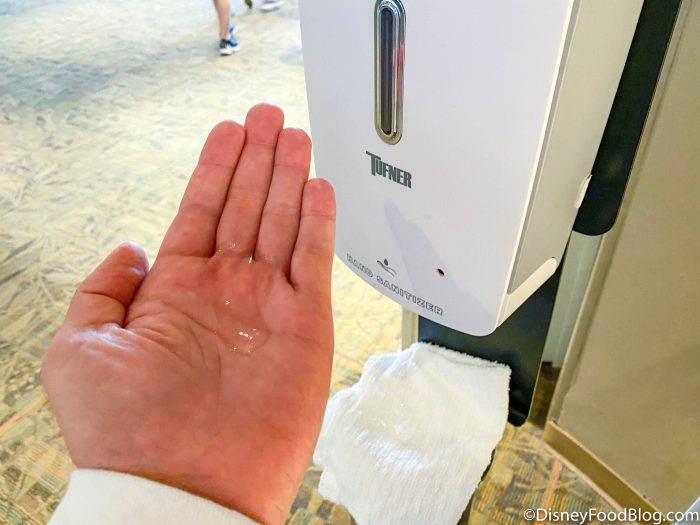
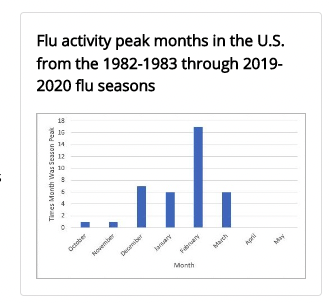



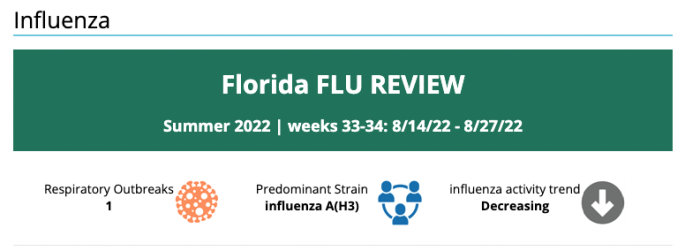

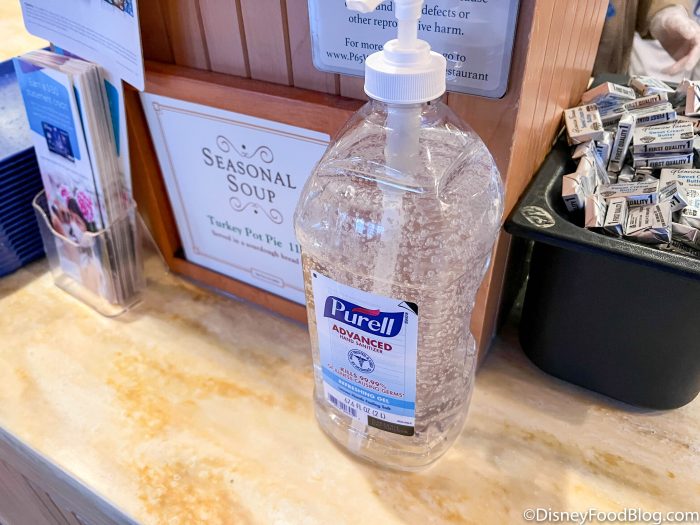
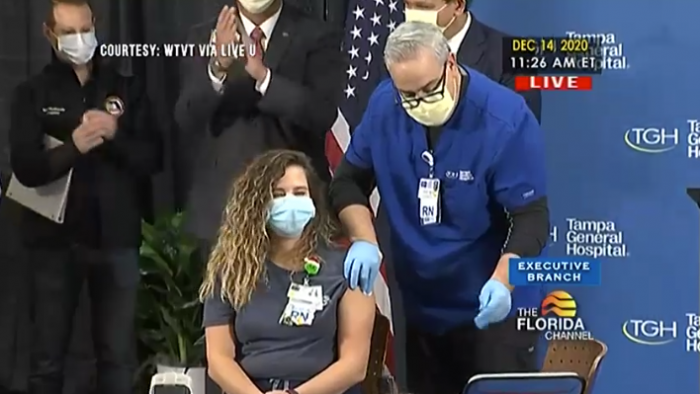
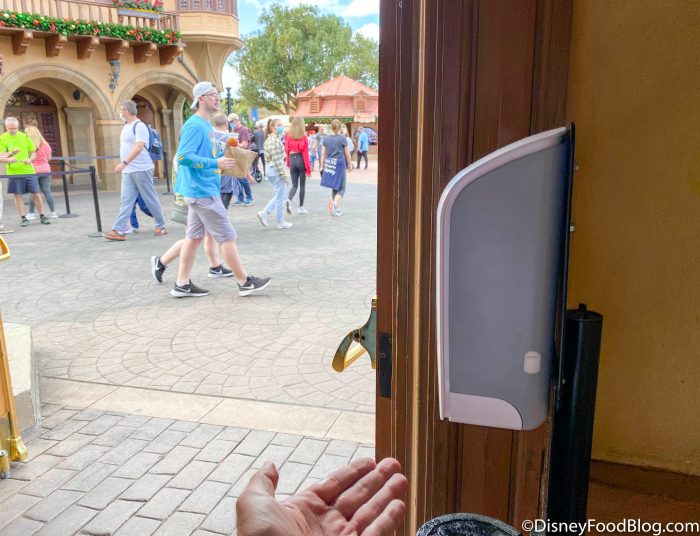

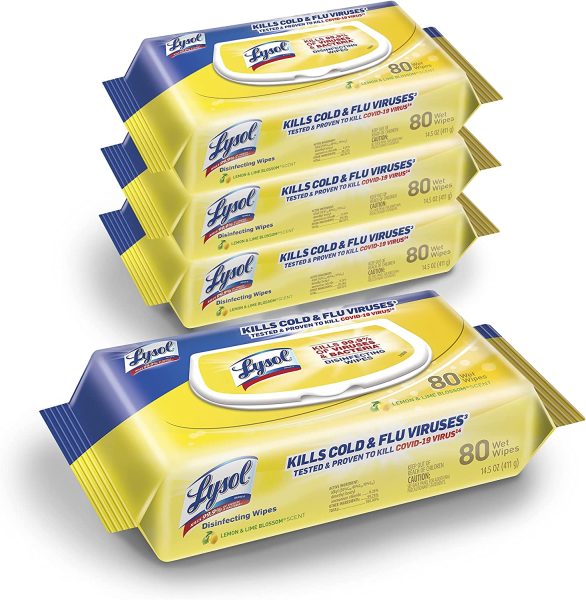
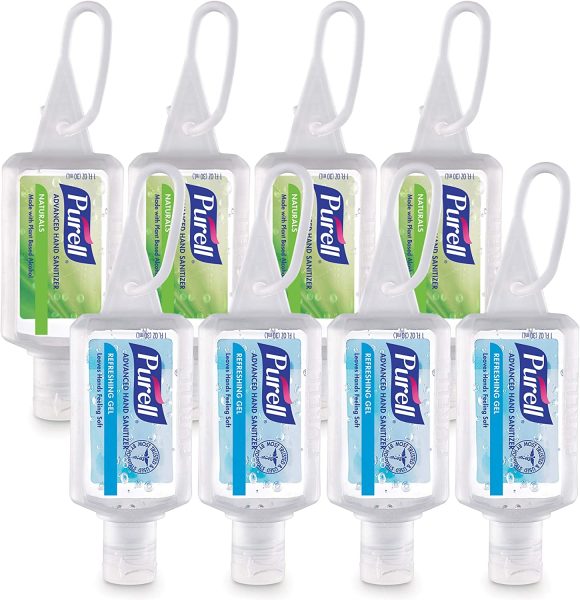
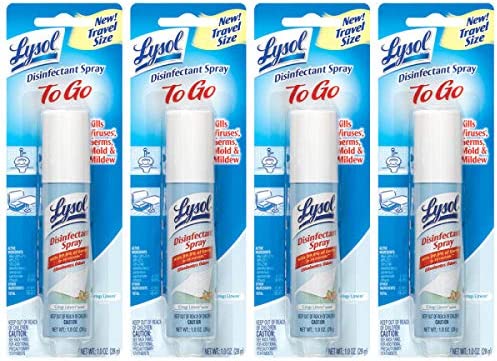

 Our handy (and portable!) ebook guides make sure you get the best deals and can plan a vacation of a lifetime.
Our handy (and portable!) ebook guides make sure you get the best deals and can plan a vacation of a lifetime.

TRENDING NOW
Get that last-minute holiday shopping done now!
Now is a great time to grab those last-minute gifts from Amazon since some really...
This special Magic Kingdom parade is changing tomorrow and we have all the details.
The owners of Gideon's Bakehouse are opening a new concept in Orlando and we've got...
Buckle up! Hollywood Studios is changing in the new year!
Disney's new timeline gives us a better idea when this EPCOT icon will be up-and-running...
A lot is changing in 2025, and if you're visiting in January, here's why you...
You can save big on these five Disney Loungefly bags!
This Disneyland attraction will close soon for refurbishment.
Flights are getting delayed today!
A brand-new Stanley collection has just landed at Target!
There are a couple of dates that you need to avoid at all costs when...
This is not a drill! BLUEY is coming to Disney World!
The EPCOT Food & Wine Festival is almost here and there's a few BIG signs...
There are so many great options for restaurants in Disney World, so how do you...
After staying at this luxury resort, there's no going back.
Check out our list of 10 Disney World rides we'd recommend skipping if you are...
It has been a cold winter, but we are here with 7 Disney soup recipes...
Visiting Disney World in January? Be prepared to see a LOT of rides closed as...
Don't forget about this Disney World hotel perk in 2025!